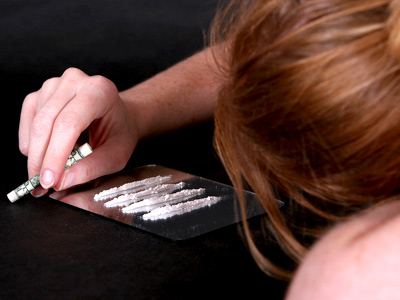
While the U.S. superpower has meddled in many far-flung nations around the globe in the name of enhancing its security, as prior to 9/11, it has ignored a threat much closer to home. In recent years, the Bush administration blithely blamed Mexico for the flow of illegal drugs into the United
States and virtually ignored the raging mayhem involving Mexican drug cartels south of the border. That rampant violence is now spilling into the United States as crime. Yet again, the Bush administration has handed off a tar baby to the Obama administration. And yet again in the security area, the Obama administration has improved on the Bush policy (it’s not hard to do) but needs to go farther.Instead of merely blaming Mexico for the problem, the Obama administration has acknowledged that the $65 billion annual demand for illegal drugs in the United States is part of the problem. In fact, it is the driver of the problem.
Unfortunately, although admitting that the United States shares blame for the problem because of its burgeoning demand is a start, the Obama administration is still focused on the long failed U.S. government policy of interdicting the supply of drugs. The administration will send almost 500 federal agents south to the border, accompanied by more electronic surveillance and x-ray machines, and will also focus on stopping the flow of guns and tens of billions of dollars in payments going south to the suppliers. Last year, U.S. officials were able to seize less than $1 billion in illicit drug proceeds of the estimated $18 to $39 billion routed back to Mexico. Even more snooping into the bank accounts of Americans will likely occur in what will probably be a futile effort to appreciably increase the percentage snared.
The new Obama policy is analogous to an alcoholic admitting to a drinking problem, but then blaming beer distributors and trying to have them arrested. The analogy to alcohol can be taken a step further. According to the Justice Department, the biggest organized crime threat in the U.S. today is the presence of the Mexican drug cartels in 230 U.S. cities. Similarly, in the United States, organized crime got a huge boost by the prohibition of alcohol in the 1920s and 1930s.
So if there has been a failure working on both the supply side (even having a fortified border still results in tens of billion of dollars in annual drug imports) and demand side (drugs are illegal, yet many people still do them), then why not try a fresh, if counterintuitive, approach that many economists favor? Why not legalize drugs for adults 21 and over?
Sound radical? Even crazy? Here’s the logic. Such drugs are cheap to make. The reason they are so expensive is because producing, transporting, and selling the drugs risks arrest, jail time, and even injury or death. Crime results because the substances are illicit, people buy guns to protect themselves, and then use them to shoot at other drug cartels competing for the huge profits or to commit crimes to pay the steep prices because drugs are illegal.
Legalizing drugs for adults would turn it into a mainstream business and prices and profits would dramatically drop, thus resulting in far less crime among producers, traffickers, and users. If the price dropped, more people might try drugs, but money can better be spent on education campaigns and treatment than on stricter drug laws and penalties and government agents, gizmos, and improved border fences in what has been a multi-decade futile effort to stanch the flow of drugs into the United States. After all, since drugs are cheap to make, the drug producers simply estimate that 10 to 15 percent will be interdicted by law enforcement and simply produce that much more.
In addition, the United States has the largest prison population in the world, but many of those people—convicted on most drug crimes—should not be there in the first place. Shouldn’t any adult be able to make their own decisions about what substances to put in their bodies? Taking most illegal drugs is unhealthy, but why should the government get involved in regulating personal behavior for adults? Lets reserve the jail cells for true criminals: murderers, rapists, robbers, child molesters, and those who sell illegal drugs to minors. Putting routine drug sellers and users in prison just causes taxpayers to spend a lot of hard earned money creating hardened criminals.
That is why Mexico is so important. About 90 percent of U.S. drug traffic flows through there because Mexico neighbors the United States, one of the biggest markets for illegal drugs in the world. Mexico is being destabilized by a draconian U.S. drug policy, and that instability is flowing back into the United States and causing a threat to national security in the form of imported crime. This is one area in which U.S. domestic policy is hurting its foreign and security policies. Legalizing drugs for adults at home would make Mexico, an important neighbor, more stable and the United States more secure.
Ivan Eland is Senior Fellow and Director of the Center on Peace & Liberty at The Independent Institute. Dr. Eland is a graduate of Iowa State University and received an M.B.A. in applied economics and Ph.D. in national security policy from George Washington University. He has been Director of Defense Policy Studies at the Cato Institute, and he spent 15 years working for Congress on national security issues, including stints as an investigator for the House Foreign Affairs Committee and Principal Defense Analyst at the Congressional Budget Office. He is author of the books Partitioning for Peace: An Exit Strategy for Iraq, and Recarving Rushmore.

